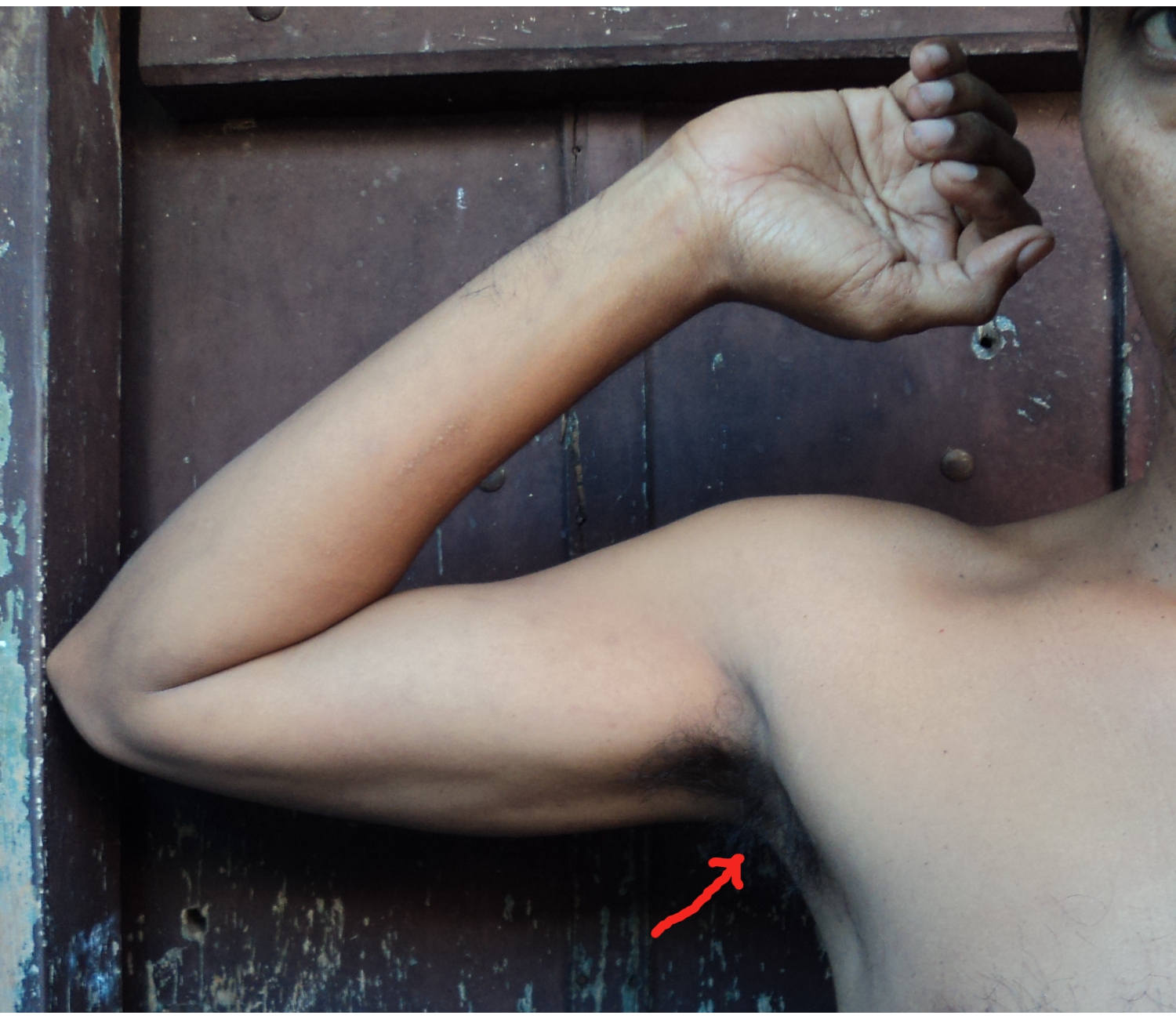

It’s hard to keep friends around when you reek, so most of us wear antiperspirant or deodorant to suppress that offensive natural musk. But those personal care products are changing the populations of bacteria that live in our armpits, according to a new study published this week in the journal PeerJ.
There are lots of bacteria in your damp, dark armpits, and it makes sense that deodorants would affect them—when bacteria break down sweat, they create stinky compounds called thioalcohols. Deodorants and antiperspirants work by reducing the amount of sweat that leaves your pores as well as the number of bacteria there to break down that sweat. But researchers didn’t know if these products could have a lasting impact on the microbiome, and whether they target certain kinds of bacteria more than others.
In the new study, the researchers divided 18 participants into three groups: those who regularly used antiperspirant, those who used deodorant, and those who didn’t use any products (the researchers distinguished antiperspirants and deodorants by their active ingredient). On the first day of the eight-day study, the participants continued their typical routines. For days two through six, they all stopped using those products. Then, on the last two days, all of the participants used an antiperspirant/deodorant product that the researchers gave them. Each day, the researchers took swabs from both of the participants’ armpits. They then cultured and sequenced the bacteria to determine how the microbiota changed over the course of the experiment.

After the first day, the researchers found that, among the three groups, participants who used antiperspirant generally had the fewest bacteria in their armpits, while those who used deodorant actually had the most on average. When everyone stopped using the products, all participants had about the same number of bacteria, indicating that the quantity of bacteria in the microbiome can regenerate over time. But the products’ effect on the diversity of those microbiota did last—even after five days of not using antiperspirant or deodorant, the participants who habitually use them had a greater diversity of bacteria in their armpits.
The researchers aren’t exactly sure what all this means for our health. On the one hand, greater microbial diversity has been associated with better immunity in other parts of the body. But on the other hand, the participants who didn’t typically use a product under their arms had a higher percentage of Corynebacteria, which are known to provide a strong defense against pathogens, according to a press release. And since these findings came from a small number of participants with a lot of variety in their microbiota, it’s hard to make any definite conclusions from them. In future studies the researchers hope to better understand how the underarm microbial diversity affects a person’s health.
